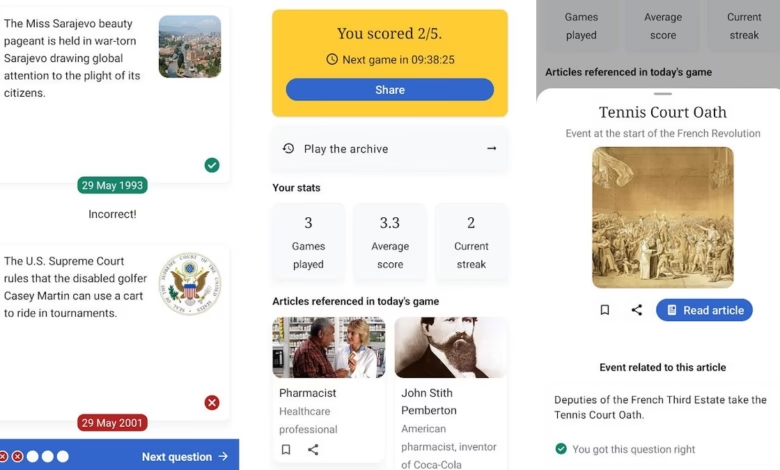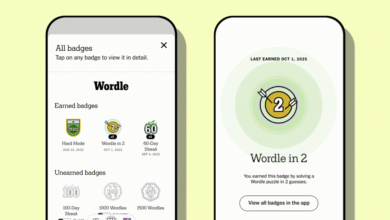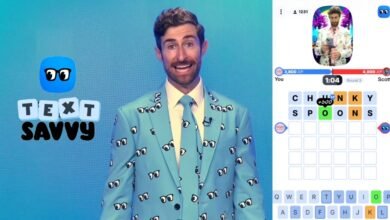Wikipedia Joins the Daily Gaming Trend

▼ Summary
– Newspapers have long featured puzzles, with crosswords being the most popular, but the trend accelerated when The New York Times bought Wordle in 2022.
– Many news websites now offer free puzzles to attract users, collect data, and encourage subscriptions, following the NYT’s successful strategy with Wordle.
– Wordle gained massive popularity in late 2021 as a daily distraction during COVID-19 lockdowns, leading to numerous clones and similar games.
– Wikipedia has introduced a new game called “Which Came First,” a simple historical quiz that educates users by linking to related articles and definitions.
– Despite its engaging format, Wikipedia’s game lacks public information, with no official announcements or details about its development or launch date.
Wikipedia has quietly entered the world of daily gaming with its new quiz feature, joining a growing trend among digital platforms to offer bite-sized challenges. The free encyclopedia now invites users to test their knowledge with “Which Came First,” a clever trivia game that leverages its vast repository of historical facts. This move follows similar initiatives by major publishers like The New York Times and The Atlantic, who have successfully integrated puzzles into their digital offerings.
The game presents players with two historical events and asks them to identify which occurred first. Simple yet addictive, it transforms learning into an engaging experience while subtly encouraging users to explore Wikipedia’s extensive articles. Each round concludes with links to related content, making it easy to dive deeper into topics that pique curiosity. For instance, questions might compare the Tennis Court Oath during the French Revolution with the SS Savannah’s transatlantic voyage—prompting players to discover connections they never knew existed.,
Unlike commercial platforms that monetize puzzles through subscriptions or data collection, Wikipedia’s approach remains refreshingly ad-free and educational. The game aligns perfectly with the site’s mission to share knowledge, though details about its development are surprisingly scarce. Searches yield little information, and even the official “more info” link leads to a blank page. What is clear, however, is that the feature debuted in May 2025, as evidenced by its archive of daily questions.
For trivia enthusiasts, this addition is a welcome surprise. The game’s minimalist design and focus on discovery set it apart from more competitive or profit-driven alternatives. Whether it becomes a permanent fixture or evolves into a broader suite of challenges remains to be seen. For now, users can enjoy a quick mental workout while stumbling upon fascinating historical tidbits—all without leaving the Wikipedia app.
As digital platforms continue blending entertainment with information, Wikipedia’s experiment demonstrates how games can educate without compromising integrity. It’s a small but meaningful step for the platform, proving that learning doesn’t have to feel like homework.
(Source: Kotaku)





